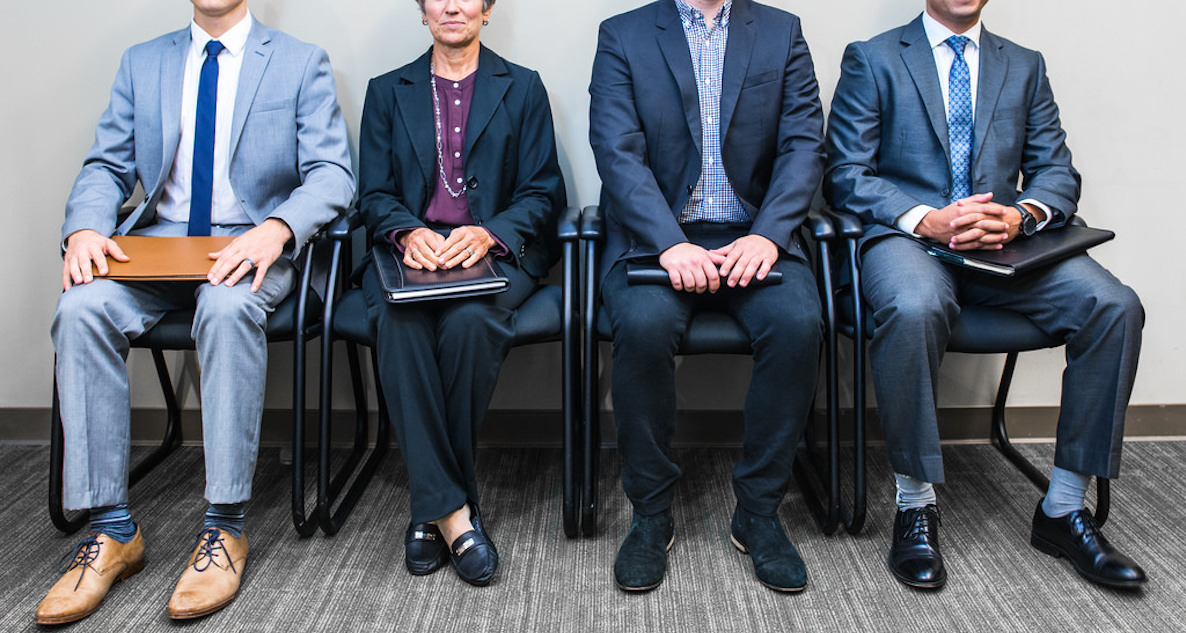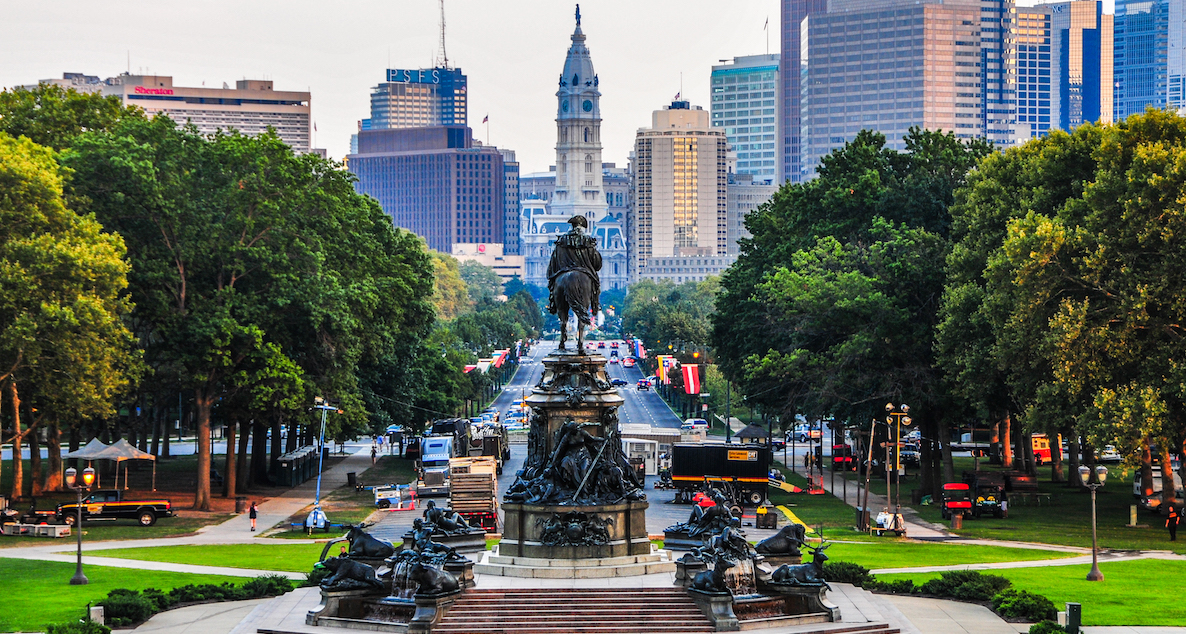Let’s face it: From a branding perspective, Philadelphia is a cemetery. It is a place where people come from around the world to pay their respects to the visionary men, the sacred documents, and the revolutionary ideas that changed the course of history almost 250 years ago. Judging by the selfie-snapping crowds that still flock to Independence Hall and queue up for a glimpse of the Liberty Bell, William Penn’s “greene country towne” has done pretty well selling history. But history is not a renewable resource or a sustainable brand. As the pace of change approaches light speed, and economic, technological and political prowess continue to concentrate in a handful of global epicenters, it’s downright irresponsible for any city that cares about its survival to go on living in the past. These days, it’s not even enough to be living in the present.
Today, a mere 300 large and intermediate-sized cities around the world account for half of the global GDP. To put things in perspective, New York City currently manages a budget of about $82 billion per year, exceeding the budget of more than 160 countries around the world. Cities are rapidly supplanting nation-states as the predominant actors of international power, and the competition for primacy among them is only intensifying. If Philadelphia hopes to be anything more than roadkill in this accelerating death race, we need to find a way out of our doldrums, a new way forward, and to step on the gas.
I believe we do have a way, and to the pole position at that. As I’ve argued before in these pages, our region—from University City up I-95 to Princeton—is a hotbed of innovation in medical research and technology. I’ve worn out my vocal chords singing the praises of Penn Medicine, CHOP and Jefferson University, not to mention the trailblazing breakthroughs of biotherapeutics firms like Tmunity and Spark Therapeutics that have commercialized the interventions developed by the brilliant doctors and researchers at those institutions. If we can successfully brand and deliver Philadelphia as the global mecca for medical technology—let’s call it medtech—in the 21st Century, I am convinced that we can not merely survive, but thrive in the brave new world ahead.
And right now presents a unique and fleeting opportunity to take this leap. The existing centers of technological imagination, innovation and commercialization cannot hold. Already, Silicon Valley, the fertile crescent of technological imagination and revolution for the past fifty years, is sliding into its inevitable period of decadence and decline. Followers of socioeconomic and cultural trends in the Valley have pointed to the region’s hyperinflation and astronomical cost of living as the primary culprit; to be sure, in a place where you have to be rich just to be poor, something is severely out of whack. This state of affairs is borne out in the trickling exodus from the region; San Francisco lost more residents than it gained in 2017, and the number of people looking to ditch the Bay Area has tripled since 2016.
History is not a renewable resource or a sustainable brand. As the pace of change approaches light speed, and economic, technological and political prowess continue to concentrate in a handful of global epicenters, it’s downright irresponsible for any city that cares about its survival to go on living in the past.
As Silicon Valley bloats and collapses under the weight of the endless bags of cash dumped upon it over the years, and as its talent disperses, a space has opened for new regional players to step in. Boston has risen to the occasion; Pittsburgh has shed its rust belt mantle and reemerged as a leader in the driverless car realm; Miami, Portland, Dallas and Vancouver are all making credible bids as home bases for tech development and destinations for the venture capital that funds it. Forward-thinking Colorado governor John Hickenlooper (who was a featured speaker at The Citizen’s recent Ideas We Should Steal Festival) has been working to transform his state into the Silicon Valley of the Rockies. The list goes on.
But to fully understand the scope and underlying drivers of this watershed in technological change and opportunity, we need to zoom out from the cities-as-centers-power thesis for a moment, and look to the East. In his eye-opening, and occasionally nerve-wracking new book, AI Super-Powers: China, Silicon Valley, and the New World Order, the visionary Chinese venture capitalist and artificial intelligence expert Kai-Fu Lee argues that the worldwide tech revolution has advanced from the era of discovery to the era of implementation.
In a nutshell, Lee says, if the first epoch of information technology was all about the micro-processor, the personal computer, the series of tubes we call the “Internet,” and eventually the mobile devices we all now use to access that series of tubes anywhere and everywhere at all times, we are now in an epoch where the application of that technology to every facet of our waking and sleeping lives, and to the societal order itself, is the dominant force.
![]()
According to Lee, the energy behind that force is the vast trove of data to which we all constantly contribute, whether we know it or not. Whereas steam, oil and electricity were the fuel of the industrial revolution, data is the fuel of the next revolution: The coming age of artificial intelligence (AI). When data is fed into a system known as a neural network, an AI rubric whose capacity to perform any number of complex tasks increases the more information it receives, the potential to disrupt industries and social relations from the interpersonal to the transnational is staggering. And as the technology becomes more refined, it is being increasingly deployed into “narrow AI” or “deep learning” systems, which focus on and become expert in specified areas. Since the dawn of this decade, narrow AI has disrupted everything from shipping and trucking, to personal automobiles to loan processing to military technology.
In less than five years, China has gone from playing frantic, furious techno-catch-up to establishing itself as the runaway global leader in applied AI. The explanation for this remarkable reversal is twofold. First, it’s a matter of demographics. With a population approaching 1.4 billion, China is the biggest country in the world, four times the size of the U.S. When it comes to AI, more data means more deep learning, stronger neural networks and more powerful and effective implementation.
And the Chinese people have been happy to do their part. Thanks largely to the embrace by a newly awakened Chinese consumer class of seamless mobile payment technologies and online-to-offline apps (think: buying groceries, laundry service and car rides via your phone), Chinese data scientists and developers have been able to gather virtually endless data on human behavior. What people buy and sell, who they buy it from and sell it to, where people go, how they get there, what they see, hear, touch, smell and try to avoid along the way—there is virtually no action, transaction or interaction that can’t be traced, tracked and aggregated.
While the feds still try to get their AI act together, Philadelphia should take a page out of China’s book and make a dash to the head of the pack in the West. We have the institutional resources, the reserves of brainpower ready to make their mark, and the entrepreneurial spirit to be the American leader in medtech narrow AI.
The second contributor to China’s preeminence in AI is a cultural one. Lee characterizes Silicon Valley’s competitive culture—for all its relaxed dress codes, and foosball tables—as staid, gentlemanly, and downright stodgy. In particular, he critiques the American tech sector’s fixation on originality and its corresponding aversion to anything that might even be perceived as copying. As a consequence, he contends, competitors will concede to the first mover in any new territory, backing off and changing course rather than trying to improve or find an edge. The rules of engagement in China, says Lee, are quite different.
The main thing is that Chinese entrepreneurs have no compunctions about copying, lifting and outright stealing from their competitors both at home and abroad. Lee attributes this lack of stigma to the country’s educational tradition of rote memorization, reproduction and recitation of the words and thoughts of eminent thinkers and leaders. Likewise, the relative lack in China of a robust copyright and intellectual property legal regime means the business landscape lacks the regulatory barriers that tamp down competitive fervor in the West. The result, says Lee, is an entrepreneurial environment that commands fierce competition and brooks nothing in the way of scruples or conventional Western business ethics.
This tendency toward ruthless pragmatism, or perhaps pragmatic ruthlessness, is just the prescription for the current moment in technological advancement, and precisely why China is at the vanguard of the new revolution in AI. And perhaps the most revolutionary application of narrow AI, and one still just scratching the surface of its potential, is in the medical field.
According to a just-published report in Nature, a group of Chinese scientists (no surprise there) have determined that “machine learning classifiers can query electronic health records in a manner similar to the hypothetico-deductive reasoning used by physicians and unearth associations that previous statistical methods have not found.” In other words, AI can now analyze health data to make diagnoses of childhood diseases with as much accuracy as an experienced pediatrician.
The potential applications of narrow AI in medtech are virtually limitless, and it’s here that Philadelphia should pay heed to the achievements of our neighbors to the East. With its enormous on-line population, relative paucity of privacy restrictions and state apparatus fully mobilized behind the efforts of the AI sector, China is at a significant advantage in developing the systems that are reshaping diagnostic healthcare, but that’s not to say the U.S. can’t compete in this space. Recently, no less a visionary than President Donald Trump signed an executive order launching an “American AI Initiative” to advance national investment in the field. While the particulars of the plan are sketchy at best, it is reassuring-ish to know that attention is being paid to this cataclysmic technological shift at the highest echelons of American political power.
While the feds still try to get their AI act together, Philadelphia should take a page out of China’s book and make a dash to the head of the pack in the West. As noted, we have the institutional resources, the reserves of brainpower ready to make their mark, and the entrepreneurial spirit (at least in some quarters) to make Philadelphia the American leader in medtech narrow AI. What we lack, at least for the time being, is the political imagination and strategic marketing message to attract the venture capital dollars and legions of tech talent required to launch our region into this new realm. Rather than abiding a political class committed to relitigating the blame for our 20th century decline while paying fealty to the same gatekeepers deadset on maintaining a self-serving status quo, we need a concerted effort to assemble and deploy ample tools at our disposal to reinvent and rebrand our city. It won’t be easy, but we’ve seen it can be done. And if we can get out of our own way and put our minds and money to the task, I see no reason why Philadelphia can’t become the greene country towne of the future.
Header: Pixabay








